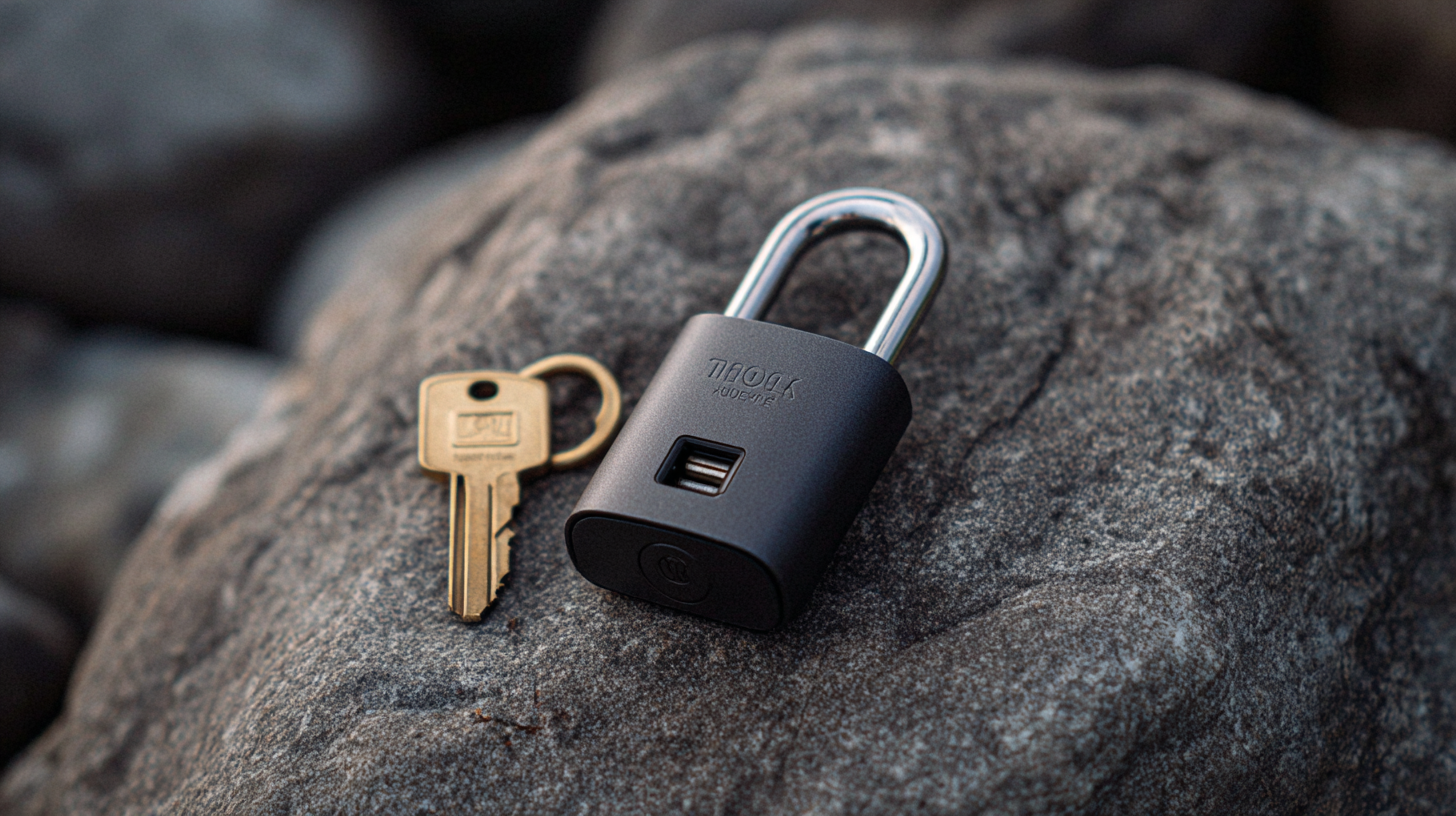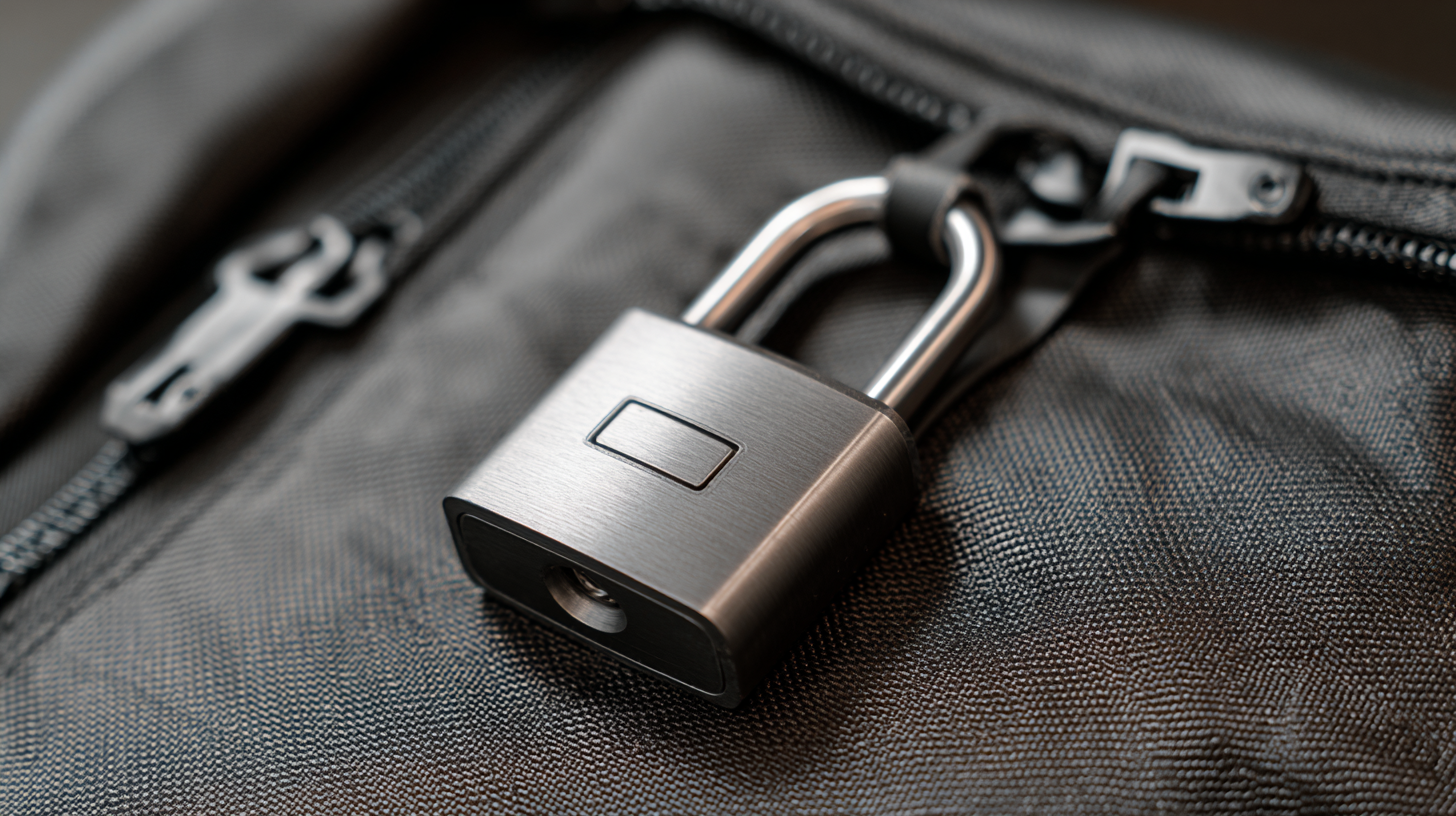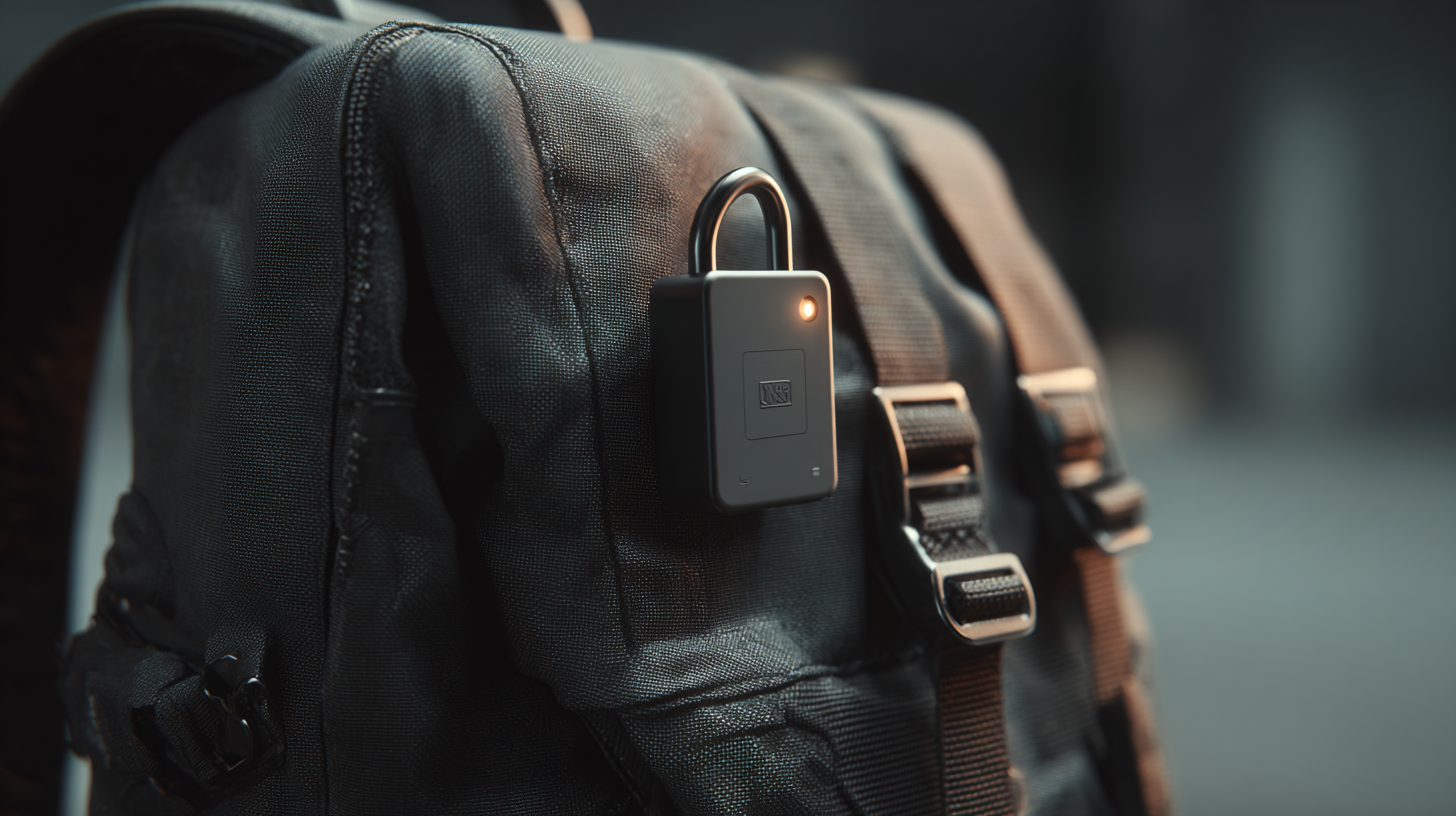 +86-18620643668
+86-18620643668 


As we approach 2025, the landscape of security solutions continues to evolve, particularly in the realm of portable protection—exemplified by the state-of-the-art Backpack Lock technology. With an ever-growing demand for safety in personal belongings, it is projected that the global smart lock market will witness a significant surge, estimated to reach $7 billion by 2025, as reported by industry analysis firms. Innovations driven by artificial intelligence, biometric authentication, and advanced materials are reshaping consumer expectations and enhancing security measures for everyday items, specifically backpacks.

As outdoor activities and urban commuting become increasingly popular, the focus on securing personal items is paramount. Consequently, the integration of sophisticated Backpack Lock systems not only reflects a trend in safety but also showcases a commitment to quality manufacturing, with "World-Class Manufacturing, China's Pride" standing as a hallmark of the industry's dedication to global security standards.
As we look ahead to 2025, the evolution of backpack lock technology promises to transform the way we secure our belongings. Gone are the days of simple combination locks or basic zippers. The next generation of backpack locks is likely to incorporate smart technology, leveraging Bluetooth connectivity and biometric authentication. Imagine a lock that not only recognizes your fingerprint but also sends alerts to your smartphone if unauthorized access is attempted. This innovation will not only enhance security but also provide peace of mind for travelers and students alike.

Moreover, sustainability will play a significant role in the development of new lock technologies. Manufacturers are increasingly focusing on eco-friendly materials and energy-efficient mechanisms. By 2025, we can expect to see locks made from recycled materials designed to endure the rigors of daily use while minimizing environmental impact. Additionally, advancements in self-repairing materials could revolutionize the durability of these locks, ensuring that they stand the test of time while maintaining their visual appeal. The future of backpack locks is bright, promising a combination of security, convenience, and environmental responsibility tailored for the modern user.
The future of security locks is rapidly evolving, with significant advancements in smart lock technology anticipated by 2025. Key innovations are reshaping how we think about security in our daily lives, particularly in terms of convenience and enhanced protection. Smart locks equipped with biometric features, such as fingerprint recognition, are set to become more mainstream, offering users a level of security that traditional locks simply cannot match. The integration of artificial intelligence into these systems is further enhancing their capabilities, allowing for real-time monitoring and intelligent threat detection.
Moreover, the demand for smart locks is seeing remarkable growth in specific markets, such as certain regions in China where detached houses are prevalent. As homes become increasingly interconnected, smart locks are not just about securing doors anymore; they are becoming integral to smart home ecosystems. Market reports suggest that the global smart lock sector is poised for substantial expansion, highlighting a trend towards automation that combines the latest technology with user-friendly interfaces. As manufacturers continue to innovate, consumers will benefit from even more secure and efficient locking solutions that align with their lifestyle needs.
When considering backpack security, understanding the differences between traditional and modern locks is crucial. Traditional locks, such as combination and keyed locks, have served users for many years. They provide a basic level of security, often favored for their simplicity and familiarity. However, these locks can be vulnerable to lock-picking techniques and are sometimes cumbersome to operate, especially in a hurry. Additionally, key management can pose a challenge; losing a key means the user is locked out of their belongings.

In contrast, modern backpack locks incorporate advanced technology to enhance security and user convenience. Smart locks, for instance, can be controlled via smartphone apps, allowing users to lock and unlock their bags with ease and set temporary access for friends or family. RFID protection and biometric locks, including fingerprint scanners, are becoming increasingly popular for those who prioritize security. These innovations not only offer enhanced protection against theft but also add a layer of convenience that traditional locks cannot match. As we approach 2025, the evolution of backpack lock technology promises a future where security is both effective and user-friendly.
As we look towards 2025, the landscape of backpack locks is evolving rapidly, driven by user-friendly innovations that prioritize security without sacrificing convenience. The next generation of backpack locks will incorporate biometric technology, allowing users to unlock their bags with a simple fingerprint scan. This feature not only enhances security but also eliminates the need for remembering combinations or managing keys, making it a seamless experience for everyday users.
Additionally, future backpack locks are expected to integrate smart technology and connectivity features. Imagine a lock that syncs with your smartphone, sending alerts if someone attempts unauthorized access to your bag. Such locks could also offer customization options, allowing users to adjust settings through a dedicated app. Furthermore, lightweight materials and compact designs will ensure that these locks are convenient to carry, making safety an effortless part of daily life. With these advancements, the backpack lock of the future will empower users, ensuring peace of mind while on the go.
This chart illustrates the projected advancements in user-friendly features for backpack locks by the year 2025. The data represents the percentage increase in the implementation of specific features that consumers are looking for in backpack locks.
As we look ahead to 2025, the landscape of backpack security is poised for significant transformation, thanks largely to advancements in biometric technology. Traditional locks, often easy to pick or bypass, are being replaced by innovative solutions that ensure a higher level of safety.
Biometric locks, which utilize unique physical characteristics such as fingerprints or facial recognition, provide not only enhanced security but also user convenience. Imagine a backpack that seamlessly unlocks the moment it’s in your hands, eliminating the hassle of fumbling for keys or remembering combinations.
Moreover, the integration of biometric technology into backpack security solutions is not just about convenience; it also caters to the growing concerns around personal safety and theft. With backpacks becoming a common target for thieves, these advanced locking systems offer peace of mind for users. Companies are actively researching and developing systems that not only protect valuable belongings but also track unauthorized access attempts in real-time.
This proactive approach to security promises to redefine how we perceive and utilize locks, making biometric options a prominent feature in the next generation of backpack technology.
